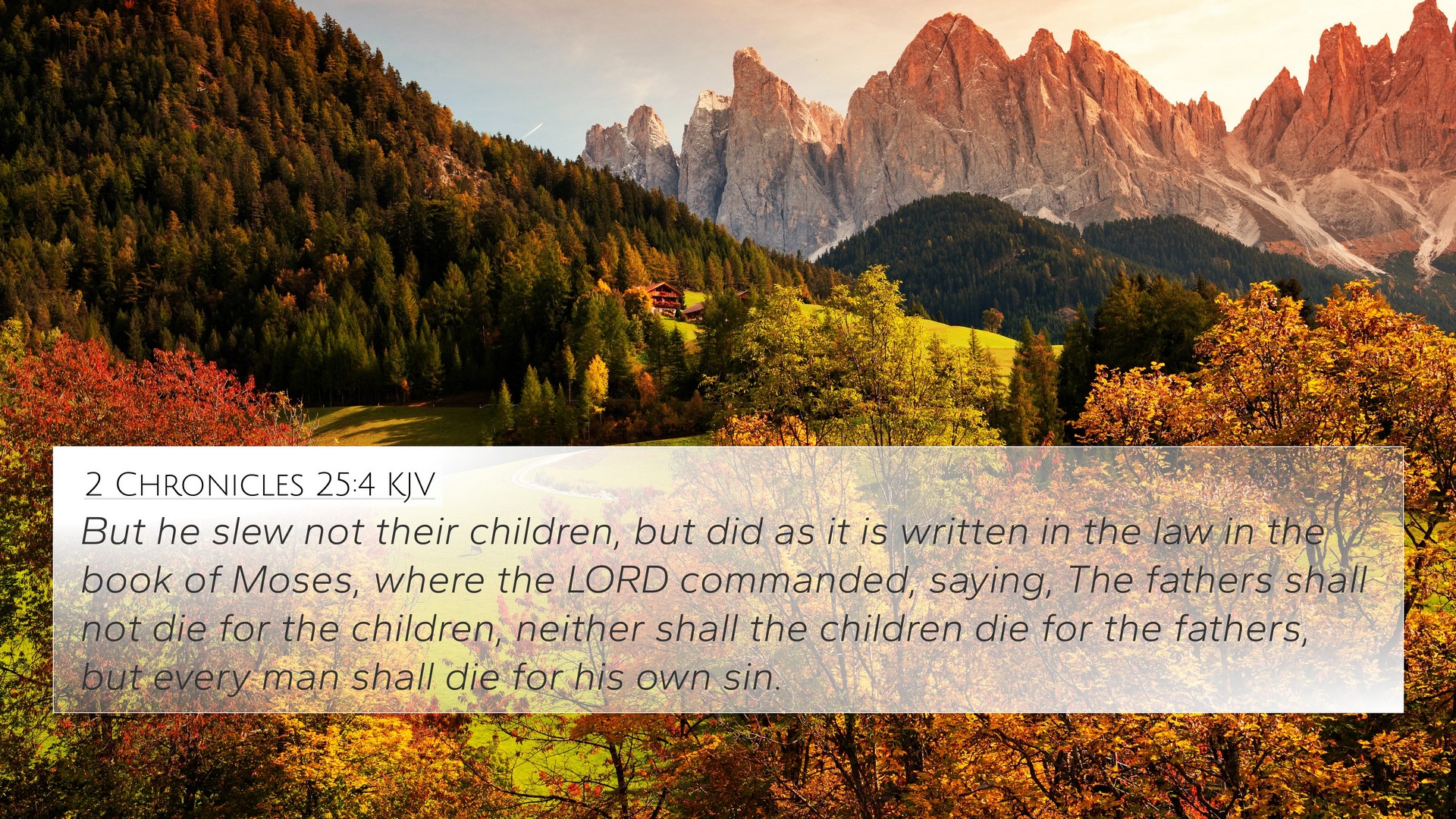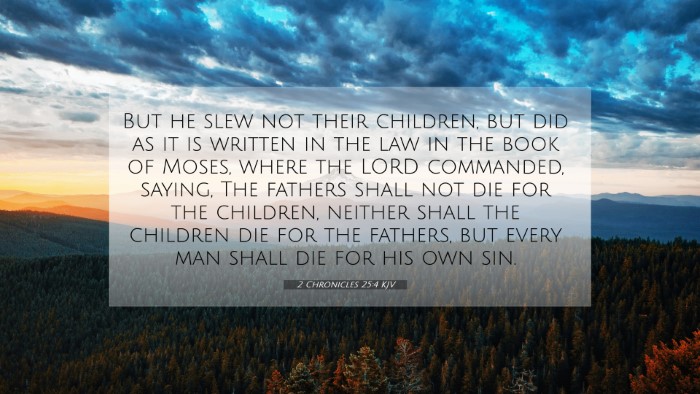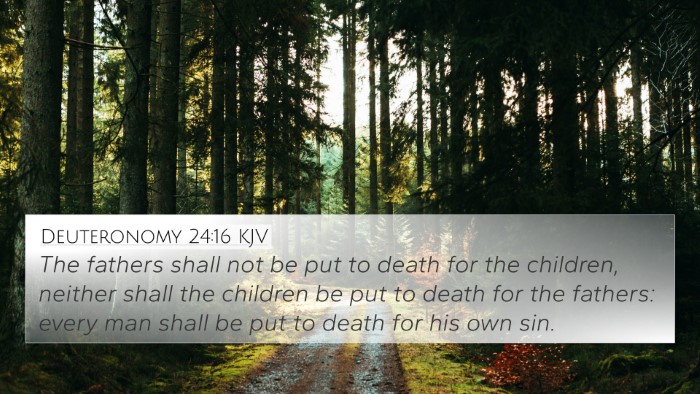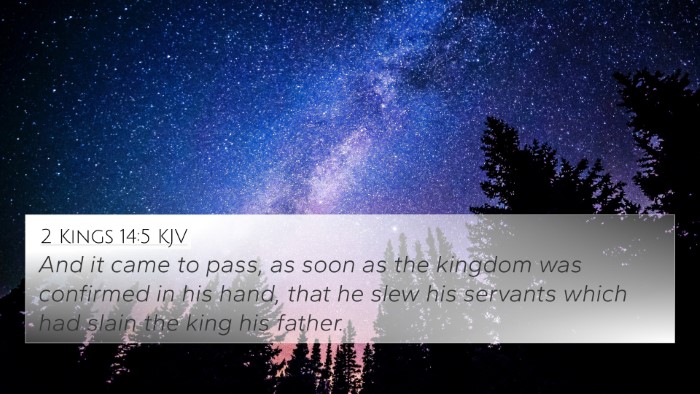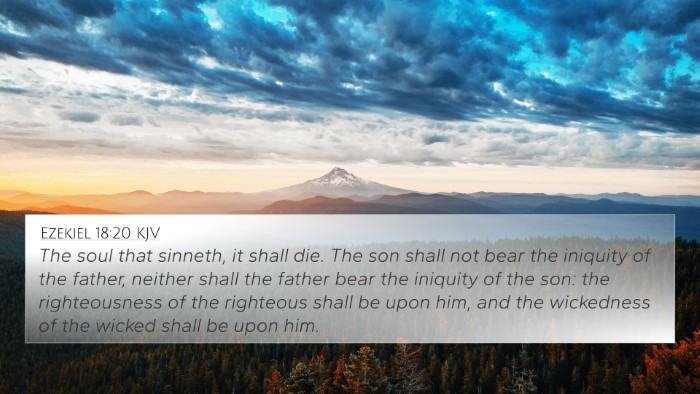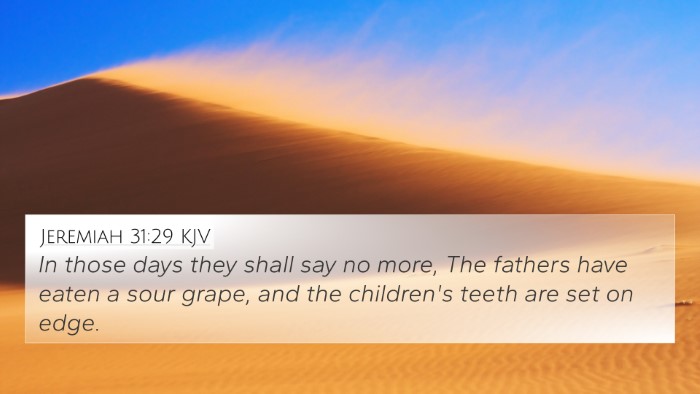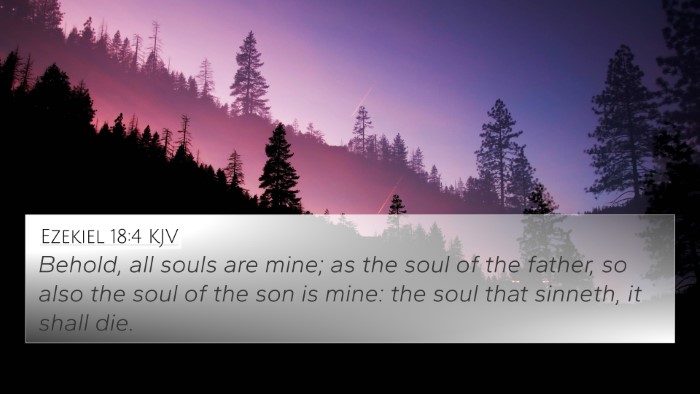Understanding 2 Chronicles 25:4
In 2 Chronicles 25:4, the text focuses on King Amaziah’s actions regarding the punishment of those who murdered his father. The verse states:
“But he did not put their children to death, but did as it is written in the Law in the book of Moses, where the LORD commanded, ‘Fathers shall not be put to death because of their children, nor shall children be put to death because of their fathers, but each one shall die for his own sin.’”
Summary of Insights
This verse conveys a significant message about justice and the principle of individual responsibility. King Amaziah displays wisdom by adhering to the Law of Moses, which provides guidelines for justice in the context of family relationships.
Key Themes and Connections
- Individual Responsibility: The verse emphasizes that each person is accountable for their own sins, reflecting a core teaching in scripture.
- Divine Justice: The mention of the Law reinforces the character of God as just and fair in His dealings with humanity.
- Moral Duty: Amaziah's decision to spare the children of the murderers illustrates moral integrity and a commitment to righteousness.
Bible Cross-References
Here are some key Bible verses that relate to 2 Chronicles 25:4, highlighting the themes of justice, responsibility, and the Law:
- Deuteronomy 24:16: “Fathers shall not be put to death because of their children, nor shall children be put to death because of their fathers; each one shall be put to death for his own sin.”
- Ezekiel 18:20: “The soul who sins shall die. The son shall not suffer for the iniquity of the father, nor the father suffer for the iniquity of the son.”
- Galatians 6:5: “For each will have to bear his own load.”
- Romans 14:12: “So then each of us will give an account of himself to God.”
- Matthew 12:36: “I tell you, on the day of judgment people will give account for every careless word they speak.”
- James 4:17: “So whoever knows the right thing to do and fails to do it, for him it is sin.”
- 2 Corinthians 5:10: “For we must all appear before the judgment seat of Christ, so that each one may receive what is due for what he has done in the body, whether good or evil.”
Comparative Analysis of 2 Chronicles 25:4
Several public domain commentators provide illuminating insights on this verse:
- Matthew Henry: He emphasizes the importance of following God's Law and notes that Amaziah's decision reflects a proper understanding of justice as laid out by the Lord.
- Albert Barnes: His commentary suggests that Amaziah’s adherence to the Law signifies a leader inclined toward righteousness, setting an example for his nation.
- Adam Clarke: Clarke points out that this verse highlights divine principles intended to guide human actions and reflects the mercy of God in the face of sin.
Application and Reflection
As we meditate on 2 Chronicles 25:4, we should consider:
- How does understanding individual responsibility shape our view of justice in society today?
- What can we learn from King Amaziah about leadership and upholding moral values?
- In what ways can this verse be applied in our day-to-day decision-making processes?
Concluding Thoughts
2 Chronicles 25:4 serves as a rich text for understanding biblical justice and responsibility. As we explore the connections between Bible verses, we see how this scripture not only stands alone but also interacts with countless others throughout the Biblical narrative. For those engaging in cross-referencing Biblical texts or performing comparative Bible verse analysis, this verse is a vital part of the larger conversation about morality, accountability, and divine justice.
